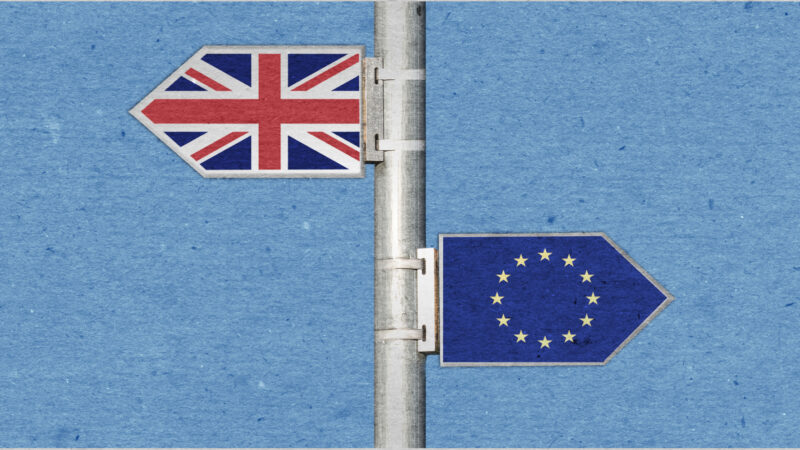
The UK formally left the EU in January, belatedly implementing the result of the 2016 referendum. But clearly this is far from being the end of the road. The UK is bound throughout the transition period by all the obligations of a full member state. There is a great deal of disentangling to be done, and evidently a wide gap between the UK’s stated intentions and what the EU appears to have in mind.
The Foundation for Independence, a fully cross-party organisation, has been established to monitor these developments and to hold the government – and the opposition – to account. Brexit does not belong to one party, and Labour must now fully engage in delivering on the decision of the British people to leave the EU.
The UK government’s view, as set out in a recent speech by David Frost – the UK’s chief negotiator – is that the UK should become fully independent of the EU, except in so far as we reach agreements with the EU on an intergovernmental rather than an integrated political basis, covering all the many matters on which we have a common interest.
The EU’s view, on the other hand, is that in return for access to the EU market the UK should have to comply with large sections of the single market and customs union obligations to provide a ‘level-playing field’ for UK-EU trade. This would entail the UK being obliged to follow EU precepts on issues varying from state aid to environmental standards, and from employment conditions to regulation on financial services.
It is the foundation’s view that it is right to aim for full independence, as is the position for many other countries – including such varied economies as those of South Korea, Japan, Israel and Mexico – with which the EU has negotiated trade deals. All such deals entail some degree of compromise on total sovereignty but none of them involve anything like the detailed interference and control that the EU is proposing in the UK’s case.
The EU’s main argument for its stance is that the UK is a large economy very close to Europe, and therefore in a different relationship to the EU than other countries. The foundation’s view is that this is not a relevant consideration provided that there is agreement on ‘equivalence’. This means that the UK and the EU both accept that trade has to be conducted to agreed standards and outcomes – but that how these are reached should be up to each of the contracting parties to determine and not laid down by one side, giving the other no option other but to comply.
Labour lost many of its ‘Red Wall’ seats in December last year precisely because we lost a lot of Leave voters. If Labour is to win back the trust of these voters, it must work to hold the government to account on delivering upon the commitments made in the 2016 referendum – namely that Brexit would ensure that we fully take back control of our laws, borders, money and trade.
It is in this context that the ‘independence’ approach is surely the fairest way to interpret the outcome of the 2016 EU referendum. This was not a vote to remain in the EU in all but name, by formally leaving but staying within the single market and the customs union as some people have proposed. That would leave us with the worst of all worlds: with all the obligations of EU membership that the UK electorate voted against, but without us having a vote on the future direction which the EU may decide to take. The UK voted to have sovereignty over our affairs, and this is what the current negotiations ought to try to achieve.
Success will depend on the resolve of the UK negotiators and on the support that they have, which is partly where the foundation comes into play. Labour also has a key role to play here, and we have some strong cards in our hands. One is the huge balance of payments deficit we run with the EU – about £110bn in 2018. The EU sells far more to us than we do to them, putting them in a position where they have much more to lose than we do by the imposition of tariffs. Our huge payments deficit with the EU, incidentally, contrasts with the surplus – £26bn in 2018 – that we have with the rest of the world. We also pay into the EU budget some £11bn more than we get out of it every year.
The EU badly needs us to continue to pay something towards the provision of common shared services, albeit much less than we pay now. The danger is that we get pushed into making concessions – on fishing, as a prime example – in order to secure any kind of deal because of a fear that the alternative is another cliff edge. This is the scenario that we must avoid.
The foundation believes that a reasonable deal is in our own, as well as the EU’s, interest – but not if it is one-sided, in favour of the European bloc. To get there, we may have to be willing to walk away from a bad deal, and Labour should be prepared to support this. There are high stakes, and we will need strong nerves and determination to emerge with a deal that both the UK and the EU are prepared to accept.




More from LabourList
‘Labour’s quiet quest for democratic renewal’
‘Labour promised to make work pay. Now it must deliver for young people’
‘Council Tax shouldn’t punish those who have the least or those we owe the most’